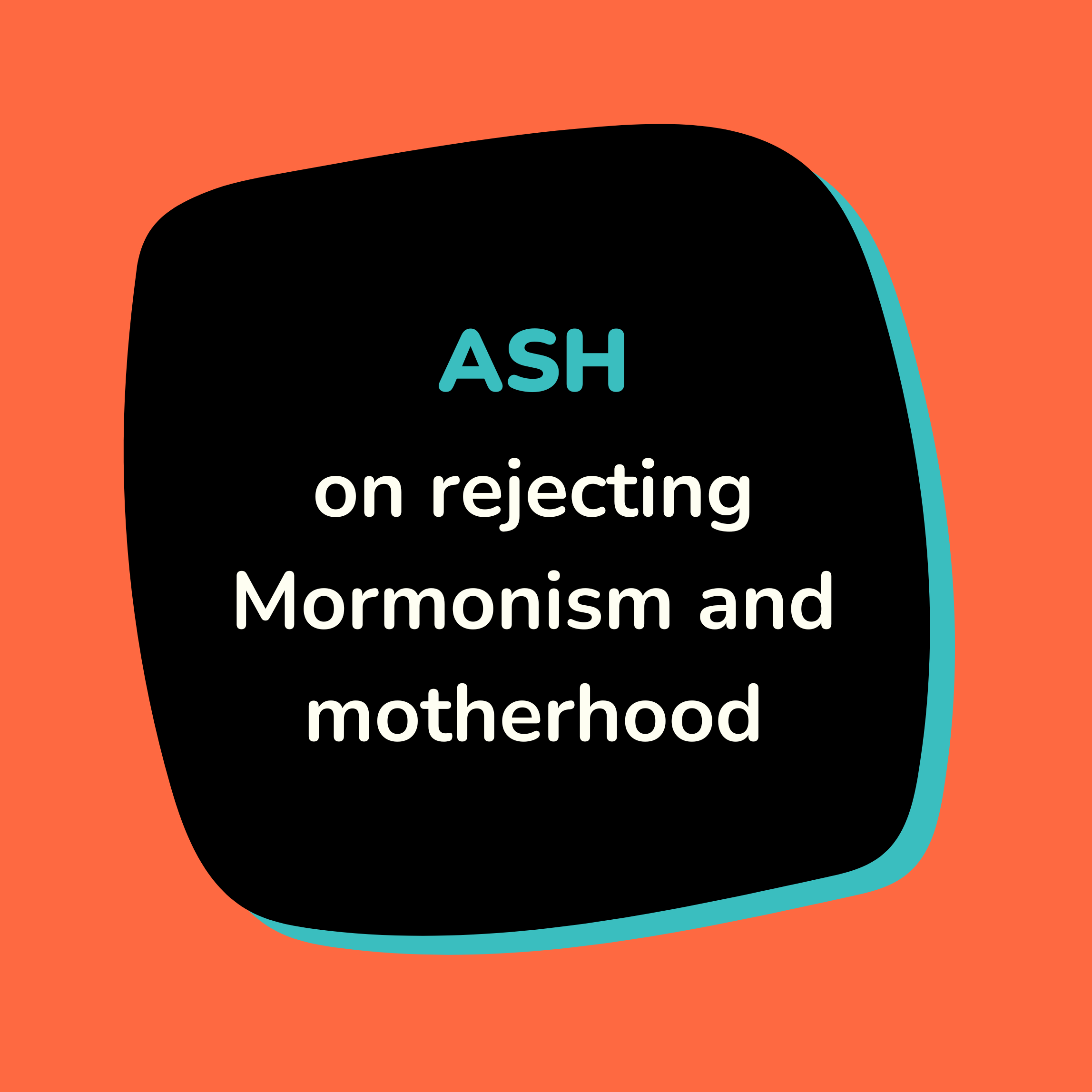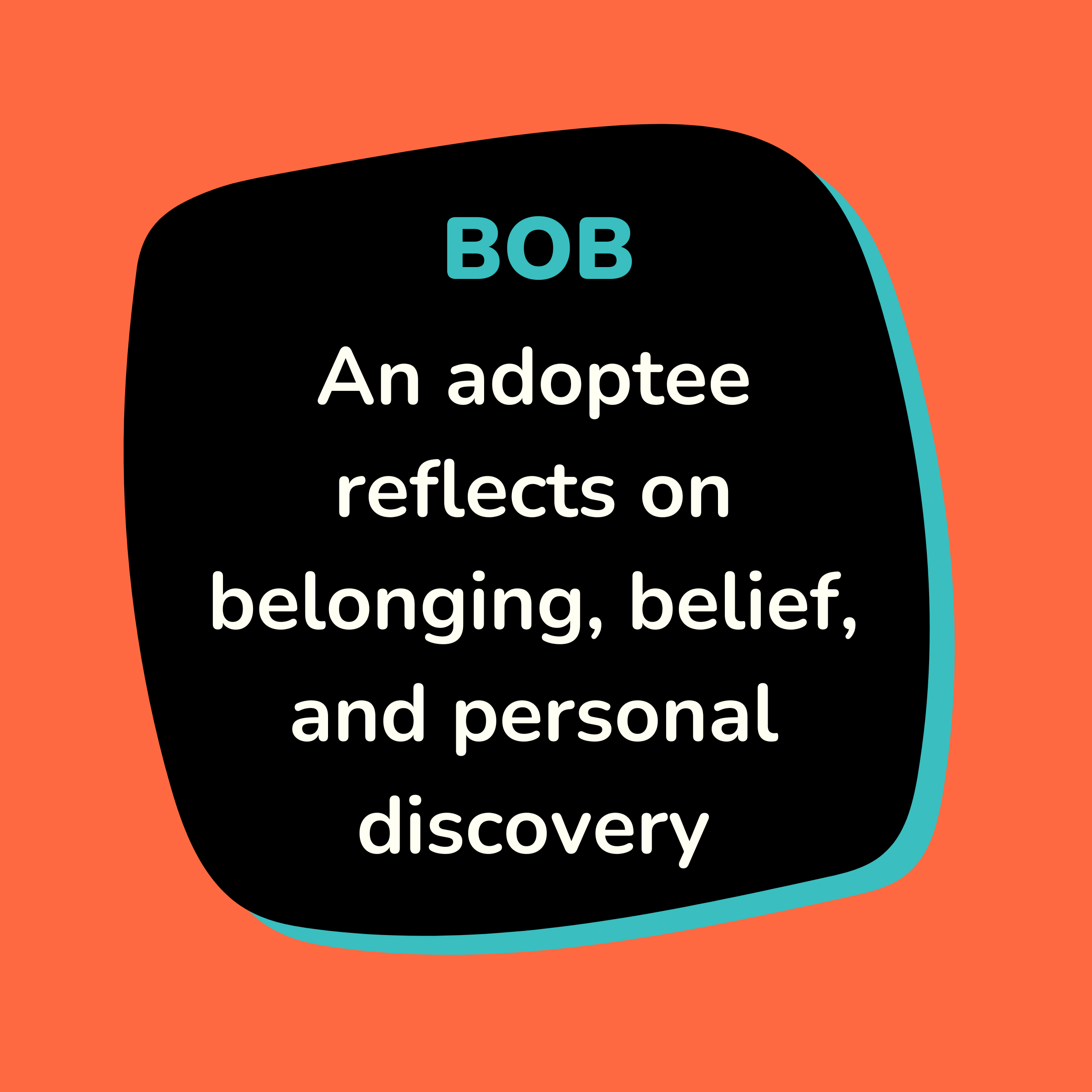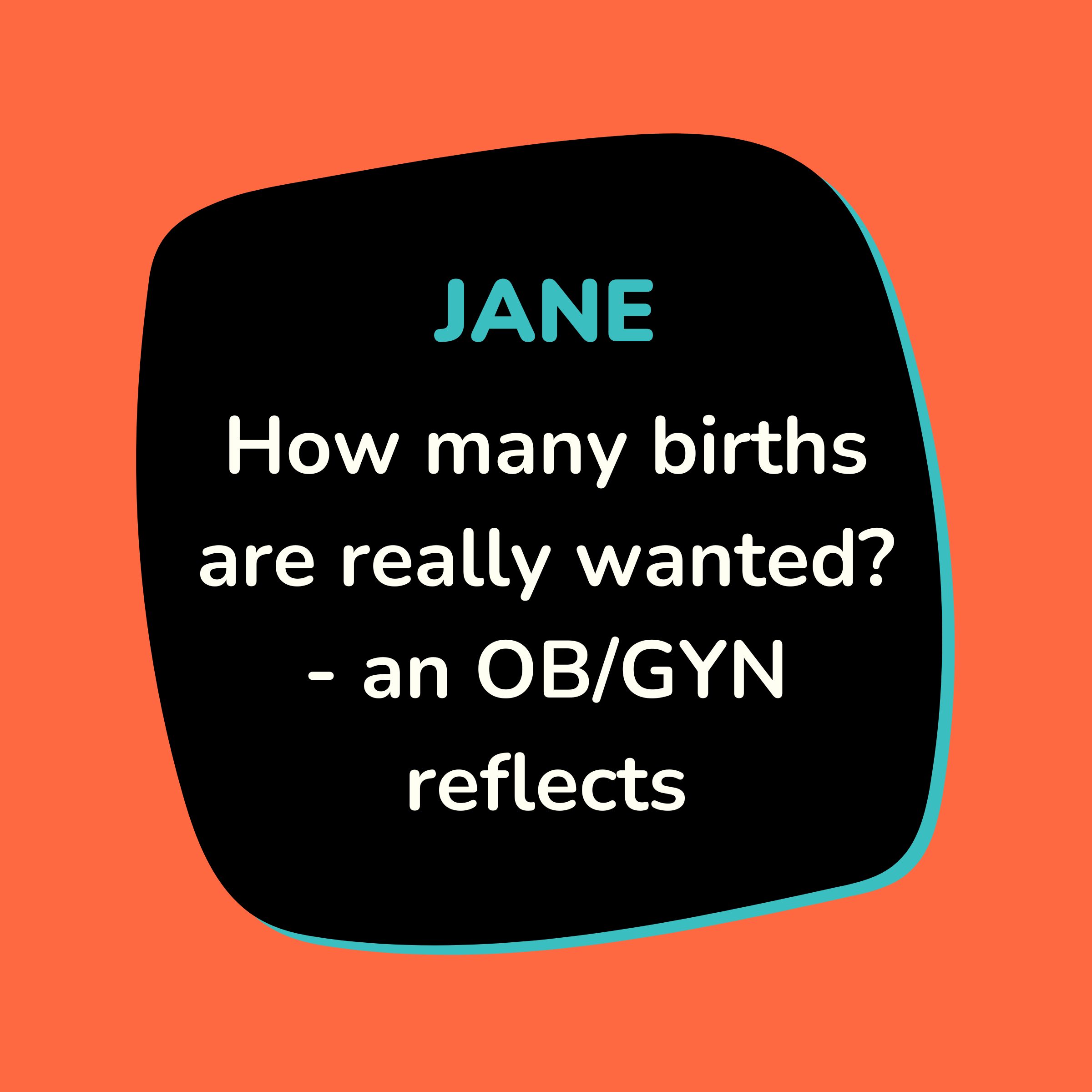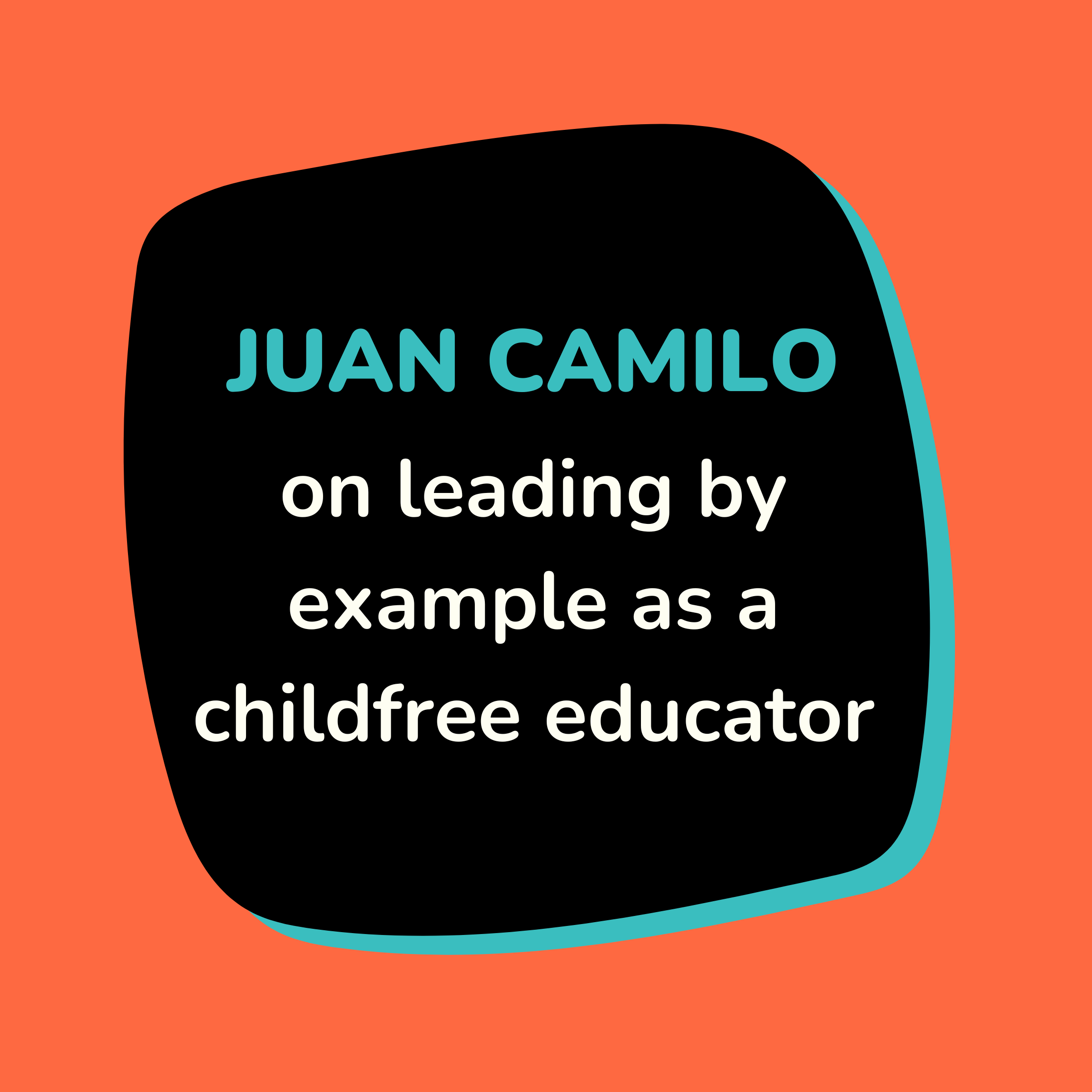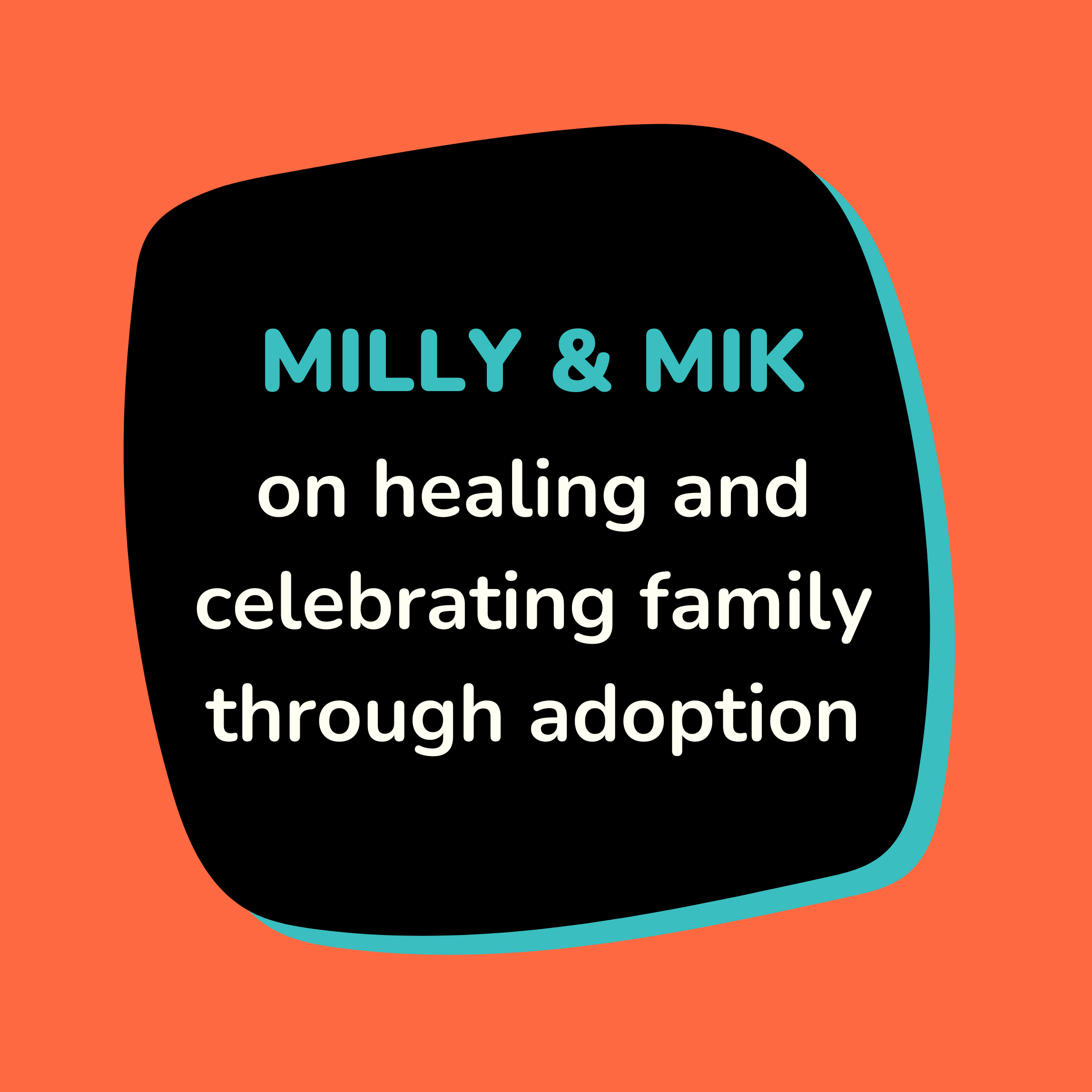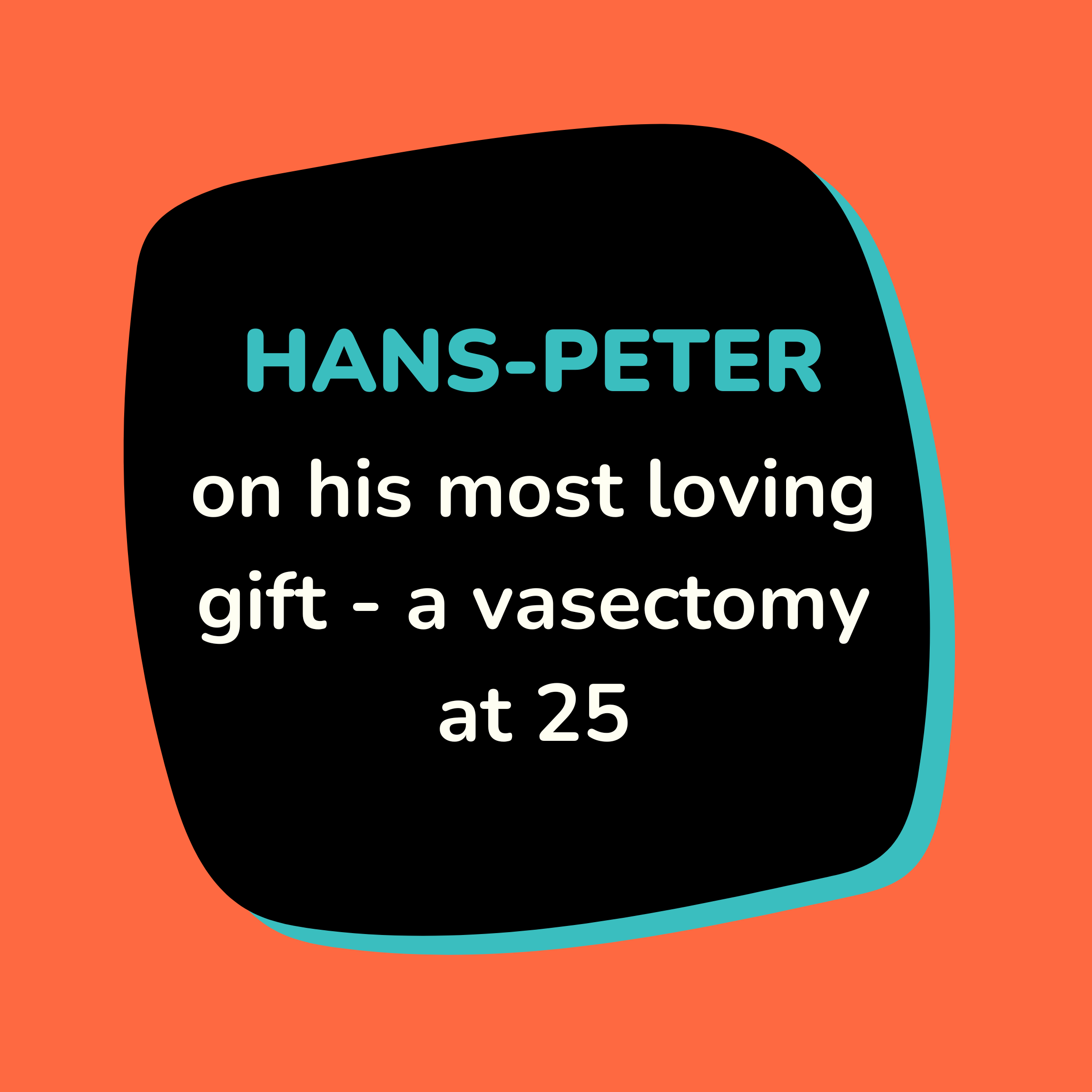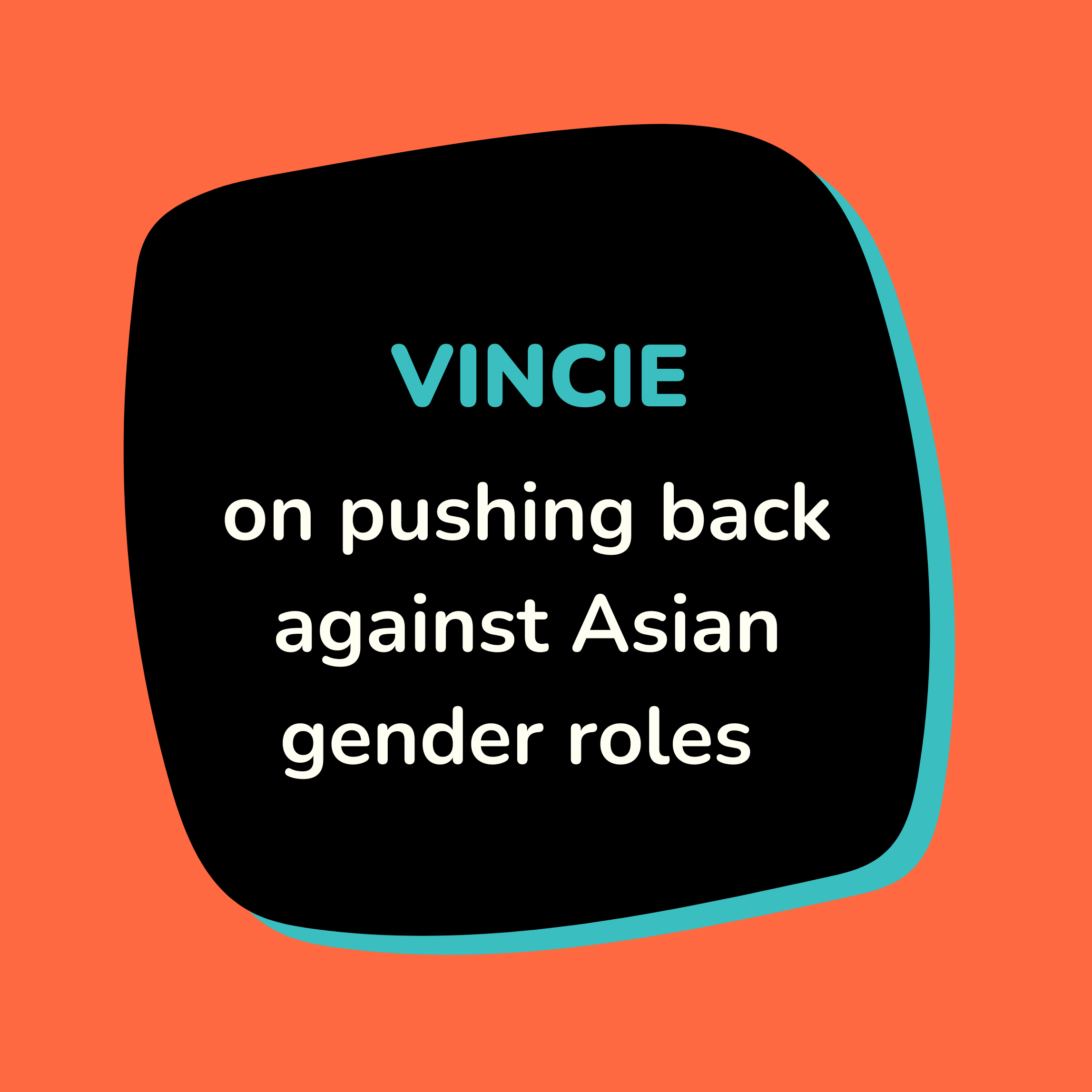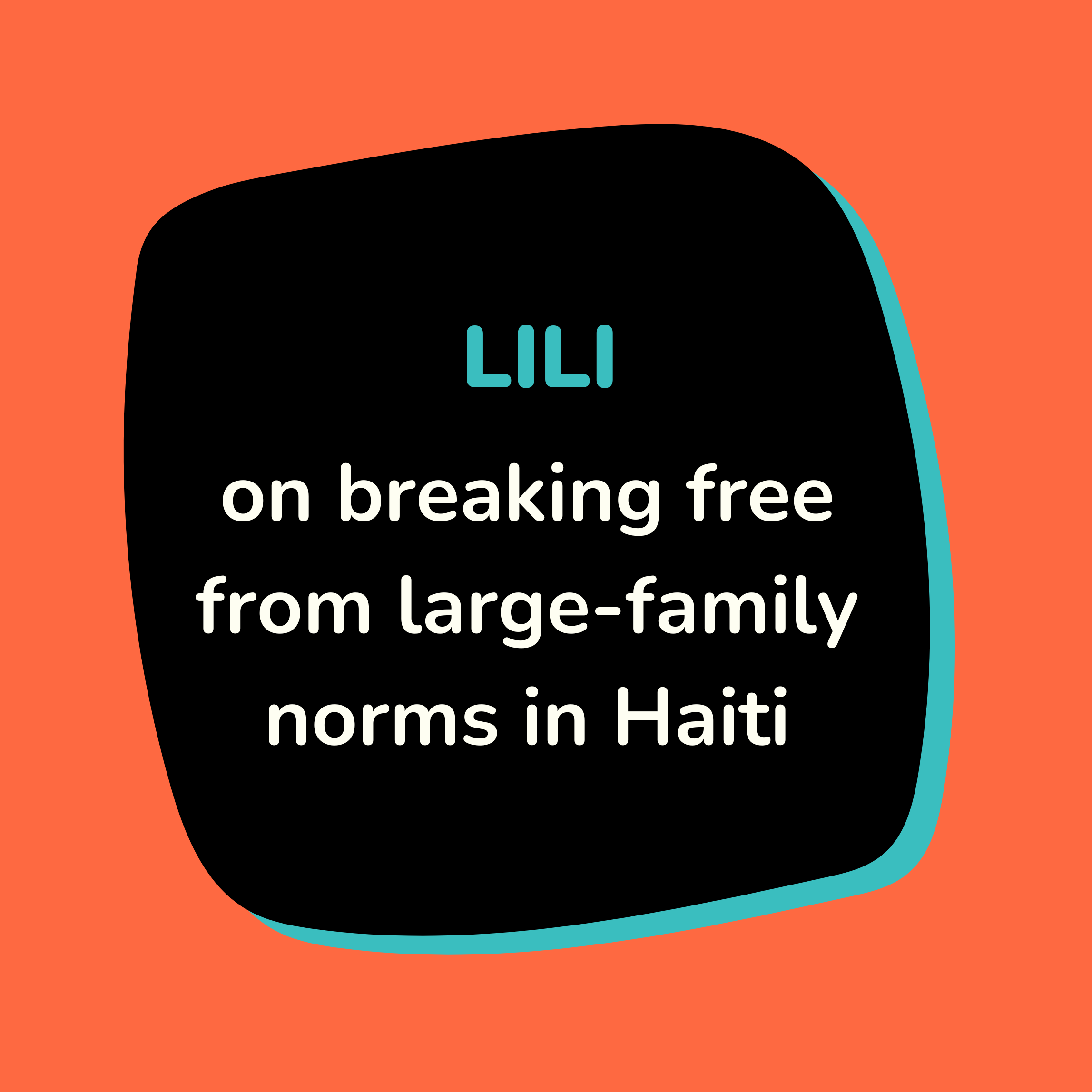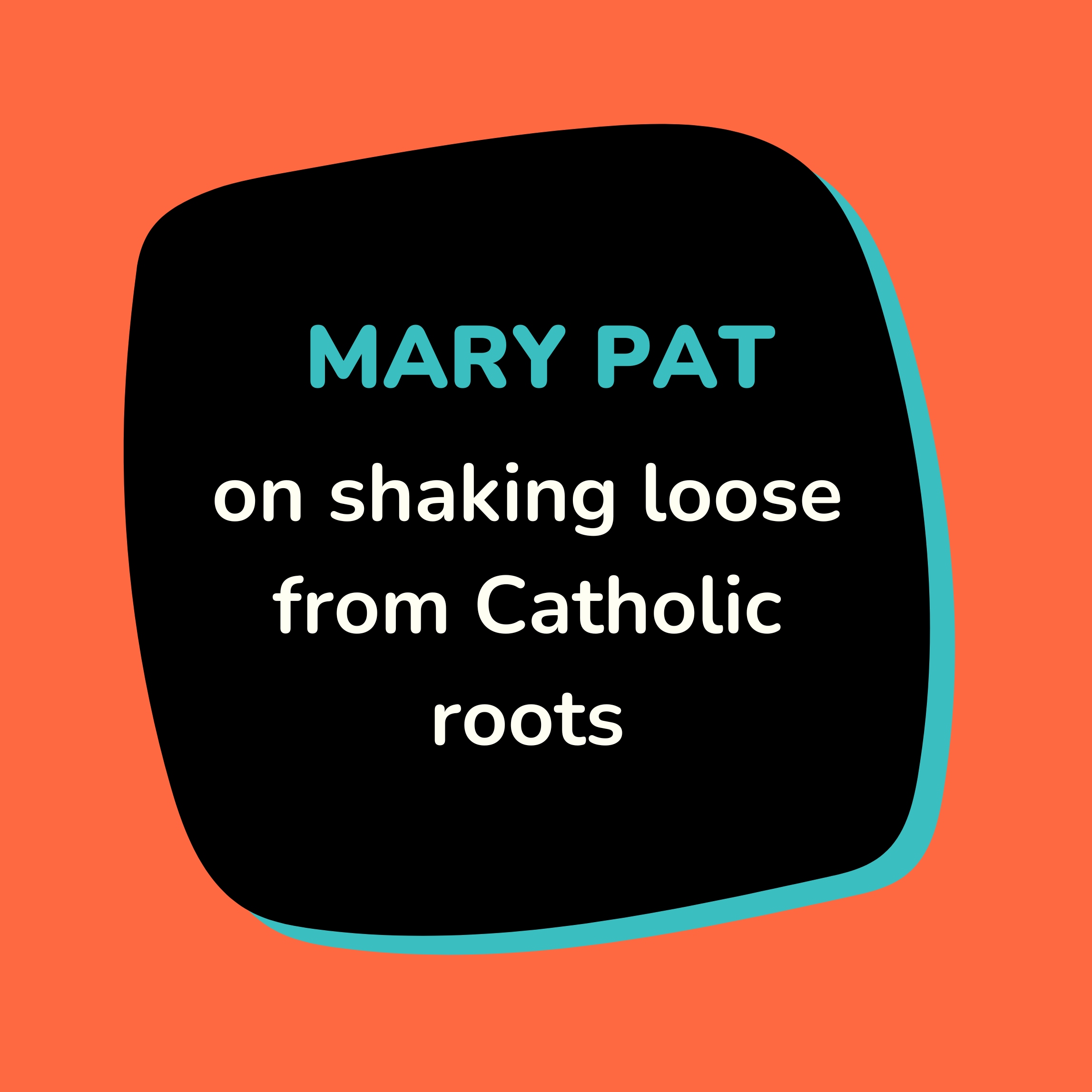Ash - on rejecting Mormonism and motherhood
A Mormon upbringing, an accidental pregnancy, and lack of access to abortion services - drove Ash to bear a child against her wishes. Committed to taking back her stolen autonomy, Ash takes a surprising path. An ardent environmentalist and animal rights advocate, Ash spends much of her time in climate activism and advocating for greater reproductive autonomy and responsibility.
-
Ash 0:00
So when I was 27, I dated this guy briefly, and then broke up with him, and then found out a couple months later that I was pregnant. And I was in a really bad situation in my own life with mental health, and I was experiencing a lot of blowback emotionally and psychologically from leaving Mormonism. I felt very isolated, and I didn't want to have a baby, and so I reached out to this ex-boyfriend because I wanted to get an abortion, but I couldn't afford it. Talked to him, and he basically was like, abortion is wrong. I love you. Let's have this baby. And I was like, No, I don't want to. And he just kind of ground me down, ground me down, ground me down. And I was so sick and so powerless that I eventually made a decision that was really against everything that I valued and believed in.
Nandita Bajaj 0:46
That was today's guest, Ash. Hello everyone, and thank you for joining me on this journey. My name is Nandita Bajaj, and I'm the host of Beyond Pronatalism: Finding Fulfillment, With or Without Kids, an interview series in which, through intimate conversations with women and men from diverse backgrounds, I explore how they are courageously and creatively navigating pronatalism - the often unspoken pressures to have children, whether from family, friends or the culture at large. In each episode, I dive into personal stories with people who are forging unconventional pathways to fulfillment, including redefining what family means to them, whether that means being childfree or childless, having biological kids, adopting or fostering children or animals, or creating close-knit communities of friends and loved ones. Hi Ash and welcome to the Beyond Pronatalism podcast. I am so happy to have you here.
Ash 1:57
I'm so happy to be here and finally get to see your face.
Nandita Bajaj 2:01
Likewise. We, of course, connected a couple of years ago when you reached out to me while you were researching the question about having children in the age of ecological crisis, and you were interested in the links between pronatalism, overpopulation, climate change, and reproductive responsibility. Throughthat, I got to know about your incredible work, and we're coming full circle, and I'm really happy that our listeners get to hear how unique and inspiring your own story is. Can you tell us a little bit about yourself?
Ash 2:42
I currently live in Brooklyn, New York, but I am from Utah, from the West, and that really has shaped a lot of who I am and how I think about environmental issues and myself. And I grew up Mormon, and in my life, I've worn a lot of different hats, career-wise, but I was a climate organizer for many years, and just a general community organizer on a lot of issues. I now am more focused on writing about climate and the environment, and also religious shaping of views of the Earth and the environment, and I'm a podcast producer and host and working on a big project right now about water in the west and climate crisis and how those two things are interconnected. So I spent a lot of time in the west and a lot of time in Brooklyn, and a lot of time writing.
Nandita Bajaj 3:34
I appreciate the different dots that you're connecting between your own upbringing and how that's informed so much of your thinking. Can you tell me more about the pronatalist aspects of growing up within a Mormon community in Utah? What were the social norms that informed who you were growing up and who you ended up becoming today?
Ash 3:59
So Mormonism is a profoundly pronatalist religion, and I'll get into a little bit of doctrine here for a second to kind of help people understand. But in Mormon belief, there is a pre-existence full of spirit children that want to come to Earth, and they need to come to Earth to have this like earthly experience and be tested so that then they can either go to heaven or hell, essentially. And so there's this huge cosmological philosophy about why people need to have children. And so it's this religion where from the moment you can talk, as a woman especially, you are basically told that your destiny is to have children, to bring these spirit children from the pre-existence down to Earth and give them an earthly experience, so that then they can eventually go back to heaven. So it's very serious business. It's not like, Oh, you can have children, you cannot have children. And that's kind of the doctrinal level, but on a cultural level it's just basically like every lesson in church, all the media that you consume, all the conversations you have, again, especially as a woman, but as a man as well, you are planning for your future eternal family that you're going to live with in heaven forever. You have to find a good man immediately for you to marry and have children with. Family values are like, incredibly important. Mormons have family night once a week where you just spend time with your family and hang out. And it's like this very kind of sacred set aside time. And from my littlest memories in church, it was like, think about the qualities you want and a husband, think about the qualities you want to embody as a future mother, etc. So it's very present in everything that you do. And Mormonism is not like a Easter and Christmas Catholic situation. It's your whole life. And so it's very drilled into your head.
And then as you get older, I went to BYU, which is the Mormon University in Provo, Utah, and everything at the school is geared towards getting you married before graduation, and hopefully pregnant. And so church is basically just like an endless dating game. You know, you go to church on Sunday and you get like, thesesermons about how you need to find a man to marry, how you need to have children, making plans to have children. Why aren't you having children? Definitely don't use protection. Don't take the pill. And then during the week, there are like dating activities, so you like meet somebody. So many people that I knew in the freshman dorms were married and pregnant by the time they were juniors in college. And so it's just this extremely accelerated culture where you're expected to basically become an adult at a very young age and a parent at a very young age. And if you don't do that, it's kind of like whispers, like, What's wrong with her? What's her problem? If you're 21 and not married, you're like a crone. You're an old maid, and people feel bad for you. And so I grew up on this Mormon-produced propaganda video that was responding to the zero population movement. It followed this guy named Jimmy, who was this very hot guy in high school. He came from a Mormon family. He had six siblings, and his mom was pregnant again, and he falls in with these zero population activists at his school. And they're so cool. They sit on a red Jeep in the parking lot and talk about family planning, and they do like choreographed dances, talking about how we're running out of resources, and if we don't act by having fewer children, that the Earth won't be here anymore. And the point of the film is that Jimmy eventually sees the error of his ways and rejects his zero population friends and supports his mom's decision to have another baby. But it's a truly wild movie, and I watched it every weekend with my cousin's sleepovers, whatever, and I would pretend to be one of the zero population girls, and we would do the dances. It's just wild to look back on. But it was funny, because even though the message of the video was very much, have children, beware these zero population people, they're dangerous, I was drawn. And I didn't tell anybody this, but I was so drawn to them, and I was like, what do these people mean that the world is running out of resources? What is the connection between not having kids and helping the planet, and why do I feel so into this when I'm supposed to be opposed to this? And so it was supposed to be helping me underscore my commitment to being a mother, but it actually made me have my first questions about the link between environmentalism and having kids, which is a really funnyplace to be introduced.
Nandita Bajaj 8:40
Totally backfired.
Ash 8:42
It completely backfired. I was like, these kids are cool. So anyway, it was funny, because when I went to college, I was in the dorms with one of the stars of this propaganda film that I watched when I was younger, and it just came full circle. And it was like, BYU was this place where the whole point of college was not to get an education. It was to get married and have children, and I just stood out like a sore thumb. I dressed in super bright colors and had dyed hair and was basically a weirdo, and I just got to campus, and I was like, oh no, oh no, I've made a horrible mistake. I need to find my people. And so I started doing a weekly kind of salon at my house, this discussion night, where anybody who didn't fit in at the school at large, who was a little bit of a misfit, could come and we would talk about any topic. And it was so earnest. It makes me cringe a little bit. But it was like we only had each other. We didn't know what we were doing. No one was telling us what to read. We were just figuring out ourselves. So anybody could come and be like, I want to discuss this topic, I want to discuss this. We did it, you know, every week for all of college and over the years, we really politicized ourselves, and we started having so many conversations about belief and about politics and art and our place in the world. And most of us kind of talked ourselves out of Mormonism, and we started doing a lot of activism on campus, which I joke because I met other people who did college activism, and they were like, I was anti-war and I did anti-war protests. And I was like, Oh, I was protesting to have a guy in my room that wasn't allowed and to wear shorts above the knee. Like, that's what I was doing. But that protesting still kind of got us into this mode of thinking, of like, Oh, we need to critique all of these systems that we were handed. And for me, that really led to going back to this childhood sort of secret interest in the planet and environmentalism. And I ended up getting really invested in learning about the climate crisis and trying to figure out what my place in it was. And as I did that, I didn't think I fully could articulate it at the time, but it was the first time that I realized there is this connection between having children and environmental destruction, and I don't want a part in it. I don't want children. And I don't even know if I could have articulated that, but somehow I got through college, and I didn't get married, and I didn't have kids, and I just felt like there was some older version of myself almost acting as a guardian angel protecting me, being like you don't even know why, yet you're just not going to do this. And so I graduated unmarried, not pregnant, no kids, and started doing climate activism pretty full time.
Nandita Bajaj 11:25
So what was the purpose of college? What were you actually studying? Is it mainly religious texts? Were there only other Mormons who were there? Were there people from other communities, cultures as well?
Ash 11:40
So BYU is an accredited college, so you go there and you learn secular things. You have a major, and you do all that, but you also take classes that are religious classes that are required to graduate. So you take a Book of Mormon studies class. There's a class called Family Prep, and it's about preparing to have a family. There's a class about marriage prep as well, and these are required courses at the school. So in addition to being an English and Philosophy major, which is what I was, you're taking a lot of religious curriculum, and the school is almost entirely Mormon. There are some athletes and some international students who are not Mormon, but upwards of 95% of the student body is LDS or Mormon, overwhelmingly white, overwhelmingly affluent. And so I went to college, and I love school. I just have always loved school. I was like a kid who was sad when summer vacation came. I was a complete nerd, so I was not there for the religious curriculum. I was like, I want to take every class under the sun. And at a certain point, I had to meet with a counselor before I sign up for classes every semester, because she's like, What does welding have to do with your major? And I was like, I just wanted to take all of the classes. So my goal there was just like, let's learn everything that we can, even though it was kind of a strange environment to be doing that in.
Nandita Bajaj 13:02
And were there people like you who ended up becoming radicalized through some of the more secular courses, more counter cultural views?
Ash 13:11
Yeah, there were definitely a lot of people. Like some kids were sent there kicking and screaming by their parents who wanted them to, like, shape up and get a testimony and clean their lives up. And then there were kids that were more like me who, I came in very sincere. Like I was a weird person, intellectually and whatever, but I came into BYU as a conservative. I think I identified as a libertarian, hilariously. And I think it was almost the intensity of the place that helped me find this inner part of me that was like, these are not my people. This is not my place. And I think a lot of other students had that same experience. So I found a lot of like minds, and I always joke with some of my friends from there, so many of them became activists. So many of them became professors, people who like want to shape and change the world for the better. And I think there are just things about Mormon culture that really prime you to almost leave it and to become a very critical activist, because it's very much like you need to find the truth in this world, and then you need to live by it with integrity. And in some ways it's a very capitalist culture, but in other ways, it's a very collectivist culture. So it's like you're part of a group and you need to help the group, and you're not the most important person, and you're really used to giving a lot of your free time away for free to this organization. And so I think once you start to realize, I don't believe in a lot of these Mormon doctrines and ideas, and you start to learn about other ideas and get exposed to them, it kind of shifts. And you're just like, Oh, okay, now I'm going to bring all that collectivist, activist, truth-seeking integrity energy to this new belief system. So there were so many people at BYU that I met like that, and yeah, these discussion nights we would have, there were often 50-70 people there. People were hungry for other people who understood them, because they just didn't fit in this very intense culture.
Nandita Bajaj 15:03
It's interesting you say that they're almost priming you to reject the culture. That's not a very good strategy to propagate. Have they caught on to the fact that BYU is not preparing students to become good Mormons?
Ash 15:21
Mormons have this attitude of, like, if you're not with us, you're against us. So if you don't want to be here, get out. We don't want you. And so I think they're like, well, it's working for like 80% of the student population, and that's good. And then we're separating the wheat from the chaff. And so I think their attitude is kind of like, Okay, leave. But I think the church at large is definitely seeing droves of young people leaving for so many different political reasons, because it's such a regressive political institution, and I think they have been panicking about that and trying to figure out what's going on. You know, I grew up being like, if you read anything that challenges any Mormon doctrine, it's not just a different idea, it's anti-Mormon, and so you're very kept from learning anything about the world that might challenge your thinking. And so when you find challenging ideas, you're like, wait, this was kept from me?Then forget all this stuff I learned. I'm going over here. And I think they're realizing that. So they're trying to, like, ease up on that a little bit so that you don't have this experience of, like, no one ever taught me about this, now I'm learning about it, and I'm freaking out, and I reject everything that I grew up learning. But so many people do follow the path, and I've had so many friends who got married at 18-19years old, had babies at like 21-22. So many of them have gotten divorced. So many of them have spoken to me about childbearing regret. But they just feel locked in. It's this huge strategy. You know, you have babies before your brain fully knits together, like your frontal lobe is not done developing, and then you're very locked in, and so it's harder to leave. And so it's a very strong strategy, if that's the world you believe in.
Nandita Bajaj 16:58
That's, unfortunately, the kind of messaging that's coming out of the far right these days is, by any means necessary, we want more babies. It constitutes an incredibly dangerous threat to reproductive rights, especially what we're seeing within the US with increasingly restrictive reproductive health care, abortion bans, etc. I mean, that is the strategy of so many of these conservative, traditional politicians - to prevent women from becoming too empowered, as they say. You know, feminism being the greatest threat to mankind.
Ash 17:37
One of the church leaders gave this famous talk that was quoted a lot at BYU that said the three enemies of the church are homosexuals, intellectuals, and feminists. And I became all three, you know, and so, yes, I'm a triple threat. But, uh, that was very much the culture, and it dovetails exactly with what's going on now, which is just this huge emphasis on tradlife culture and anti-intellectualism that keeps you from learning the things that would help you have autonomy. The idea that feminism is a threat and patriarchy is the protector - that really gets into your system. Like the last thing to go for me in my like, journey of changing my mind was abortion. I believed it was wrong for way longer than I believed other things were wrong. So it really gets in your system, infuses with this whole cultural set of beliefs that keep women and keep many people from deciding what they want to do with their lives.
Nandita Bajaj 18:29
Yeah, and speaking about reproductive rights and access to health care and abortion, I know in your own personal journey, you had to navigate that decision of whether or not to have a child and not having the services and the support available to you to make that decision with true autonomy. Can you tell me a bit more about that?
Ash 18:50
Yeah, as I mentioned when I graduated BYU, I wasn't married, I hadn't had kids. I was kind of an anomaly, and there was this kind of unworded, latent but growing realization that I did not want to have kids. Like it had never interested me. I never wanted it, you know, and I also just didn't feel like I was in a position to. I experienced depression and anxiety, and I didn't feel like I wanted to add a child to that mix. And then also this growing commitment I had to climate and environmental organizing and realizing that more children on the planet puts a strain on resources for everyone - animals, people, plants - and I didn't want to be part of that mess, either. But even still, you know, these cultural ideas, they are so baked in our brains it's hard to unbake a cake, you know, and I feel like it was so baked into me that I was supposed to have kids and abortion was wrong that I just didn't fully feel prepared to actually go out into the world as an ex-Mormon and make real choices for myself.
And so when I was 27 I dated this guy briefly, and then broke up with him, and then found out a couple months later that I was pregnant. And I was in a really bad situation in my own life, with mental health, and also financially, I was not in a good place. I was experiencing a lot of blowback emotionally and psychologically from leaving Mormonism. It's an extremely painful process, and I felt very isolated, and it was very difficult. Then to find out I was pregnant this time was just this kind of final blow, and I was devastated, and I didn't want to have a baby. But I was also broke, and I couldn't tell many people in my community, because they would be angry at me for getting pregnant outside of marriage. And so I reached out to this ex-boyfriend because I wanted to get an abortion, but I couldn't afford it, and Utah doesn't provide almost any support for people in my position. Talked to him, and he basically was like, abortion is wrong. I love you. Let's have this baby. And I was like, No, I don't want to. And he just kind of ground me down, ground me down, ground me down. And I was so sick and I was in such a bad place and so powerless that I finally was like, Okay, I guess I'll have a baby, which looking back on it it's like so clear that I didn't want that, but I didn't have the support to get an abortion. I didn't have a community that I could talk to about it. And so this person's influence on me kind of dovetailed with all these like latent childhood ideas that I still had in my brain, and I eventually made a decision that was really against everything that I valued and believed in.
And as soon as I made that choice, and I told my whole community, my boyfriend left. And then at that point, emotionally and just with societal pressure from my community, like it wasn't an option to have an abortion anymore, so I was stuck in a situation where Ihad to have a baby, and I had to have a baby alone. That was a time when feminism fully developed for me out of rage, you know, because I was so angry. And in that anger, my kind of feminist education just flowered in this darkness, and I just realized how the world was set up - that because I had a womb, I was stuck with this decision that someone else had pressured me to make. And because I lived in an American culture that was trying to strip rights from women, I couldn't afford to get an abortion. And because I lived in a religious culture that told me that that was wrong and that my whole life's goal was to be a mom, I wasn't able to choose the best thing for myself, or even get support to talk to anybody about my decision. And it just was so clear to me how battered I was on every side by forces that made it almost impossible at that time for me to exercise autonomy and stand up for myself, and just promised myself that I would not do that again, that I wouldn't get myself in that situation again. I wouldn't be played in so many ways by culture again. And I did end up having a baby, but I decided if I'm going to do this, I'm going to do this my way.
I know I don't want to raise this child, but I want to be a part of this child's life. I don't agree with the adoption system that exists in America where you just hand your baby to a stranger and you never see them again. And so I just did my own kind of weird path to finding a couple who wanted to adopt, who wanted a very open adoption, and essentially I wanted to have a blended extended family where I was very involved in my child's life. And so I found this beautiful couple who wanted the same things as I did, and placed my child with them in this open adoption. And we've been very close friends ever since. I'm like my kid's aunt. She's 13 now. And it's just been this interesting exercise in being like, Okay, I came out of the situation that I didn't ever want to be in. But how can I make this a situation that matches my values now? So yeah, that's what I've been doing for the last 13 years. And having a kid also though it really underscored for me, too, this environmental, climate side of things like, what kind of world is she going to live in? And what are the consequences of me, a white woman in America, having another child, when climate scientists are telling us that we have a decade to stop this supercharged climate crisis? And so it was very much emotionally, psychologically, and politically, this crucible for me where I really realized what the score was and what mess I did and didn't want to be part of.
Nandita Bajaj 24:23
That's an incredibly powerful story. And I cannot even imagine what it must have felt like for you to be at the intersection of your culture's rejection, your partner's rejection and society's rejection of who you wanted to become, and where you actually were and how difficult it must have been for you, especially because you weren't mentally healthy, and to not have the support that you need in making one of the most important decisions and one of the most physically painful decisions, and to have to have gone through that all by yourself is really a courageous feat.
Ash 25:04
Yeah, and that's the biggest thing. You know, there are so many painful parts about that time period, butI think maybe the hardest part was feeling alone and not having anybody to talk to. And I think that's true for so many women who don't fit with the kind of mainstream pronatalist world of wanting to have kids. It's so hard to figure out how to talk to people about that. It's so hard to find the others. It's so hard to admit how you feel. And if you can't admit how you feel, it's going to be really hard to act in a way that's aligned with what you want. And that's really what I was feeling at the time.
Nandita Bajaj 25:38
Were you still living within the Mormon community?
Ash 25:41
I had left Mormonism, and I had moved all around, but at the time that I found out I was pregnant, I had moved back home to Utah and was living with my parents for a brief time because of this rebounding depression that came from leaving this institution. So yeah, I was in a very vulnerable place where I also felt like I couldn't really make my own choices because I had left the community, but I was still very dependent on them for my basic needs and social reality.
Nandita Bajaj 26:11
And they were okay with you rejecting Mormonism, but still living with them?
Ash 26:16
Yeah, my parents are incredibly kind people and very thoughtful people. And for Mormon parents, I mean, most of their kids have left or they took it fairly well, but it wasn't easy by any means. It felt devastating for our whole family, and I felt like everything that I did to be more myself was like twisting the knife in their heart. So even though they were very kind about it, it's absolutely brutal. It's the most brutal thing I've ever done is leaving a community like that, and you really do feel like you exist for other people. The whole point is, Your existence is to perpetuate the faith, and if you don't do that, that you're actually hurting people when you're being yourself, which is a really terrible way to feel. And it took me years to extricate myself from that thinking.
Nandita Bajaj 27:03
And I think that's probably the most harmful part of collectivist cultures, because there's a lot of beauty to collectivism. Because you don't exist just for yourself. You exist for something bigger than yourself, butthe complete lack of appreciation of individuality, it can be extremely stifling, right? There is no individual. In an ideal culture, you'll see a nice balance between individualism and collectivism. So we're also not seeing the kind of epidemic we're in of extreme narcissism or extreme individualism, where there really is not a lot of care for something bigger, whether it be other people, other animals, Earth, etc.They're two ends of the spectrum, right, where there's no balance.
Ash 27:51
Yeah, that's such a good point. And it's been so interesting for me leaving Mormonism, this culture that's both extremely collectivist and extremely capitalistic at the same time, and becoming this lefty political person and organizer, and meeting all these people on the left who I think have never had an experience of collectivism, who are wanting to create that and wanting that culture. I think that's great, but just always remember that collectivist culture has its downsides too, because in collectivist culture, again, your function is to serve the group or to replicate the group into the next generation. And so it's also a lot of people who are up in your business, who have opinions on you, who think that you should be living for them. And that is honestly a force that I'm still undoing in my life as a 42 year old woman. And it's deeply difficult, this feeling that you don't exist for yourself. You live for others. You live for their dream of you, and if you have a dream for yourself, you're harming them. But then, on the other hand, I value so much of the collectivist culture that I came from, but just applied towards a different end, because, yeah,I see so much hyper-individualism in America, especially. It is one of the foremost reasons that we can't do things that improve the world for all of its beings, and that we can't make meaningful climate action, that we couldn't make meaningful protections during the pandemic, that we can't address racism. All these tasks are collectivist, political tasks, and this sense of hyper-individualism gets in the way of thinking about the impact that our decisions have on others. And so I have a very fraught relationship with collectivism that I'm working out every day of my life.
Nandita Bajaj 29:43
I can probably relate, though to a smaller degree, because I think any traditional culture has that collectivist component to it. It's like you live for your family, the larger community and the culture at large and you represent them. And so you constantly have to watch your actions to fit within the norms. So you were already thinking in bigger ways when you were pregnant and after you gave birth to your daughter. But I think you said the angry feminist really came out from that experience in you. And I wonder if you could speak to your decision afterwards, to not having any more children. Can you tell me a bit more about that?
Ash 30:29
Yeah, after I had my child and I placed her for adoption, I think I was in this huge moment of reckoning. I had so much to process. Three years prior, I had left Mormonism. I had moved. I had become this full time activist. I had had a child. I had placed her for adoption. I had gone through so many different kinds of emotions, and now you're left with this whole archive of yourself to sort through and figure out. Like, who am I? And so after that happened, I felt more clearly than ever. I did have a child, and I did it in the best way that I could, given my circumstances, but I don't want to have more children, because it's just not me. I've never desired it, and that became very clear to me. And I don't want another child, because as a person who has a lot of mental health issues, I need to focus a lot on just taking care of myself. And I don't think I would be doing a child a favor by having a kid when I don't feel like I've understood how to take care of myself yet. And then also, I just had spent a lot of the time pregnant. I couldn't really do much. I was very sick. So I read a lot, and I read a lot about climate. I read a lot about environmentalism, and I also just was full of this ache and sorrow for what we were doing to the planet. And I met some people who I started to talk about how they didn't want to have kids because they were worried about how the climate future would affect their child. But I felt like in my heart, I was going one step further, and I was thinking about how having another child would affect the planet. And that's not a very popular way to think, and it can feel very cold to people, but it was very real to me.
Having another child in a world where animal populations are plummeting, and there are so many people in the world who can't even afford to eat, and there's so much injustice, it didn't feel right to me to spend my time creating another person who would take all of my time and money and attention when they're just all these people who already exist in the world, all these beings who already need care, who don't get enough of it. And I just didn't want to have a child that would negatively impact other beings and their ability to survive, and also might face a terrifying future themselves, like it just didn't feel loving. And people are like, Oh, you love your child so much. But I'm not sure about that. At least the way that it appears to me a lot of the time is we have children because we love ourselves a little too much, like we want the child to reflect us in the world, and that's no different than the way that I grew up being expected to continue on this faith or to reflect my parents and everything I did. I think there's still that impulse even in secular people. And I think if you really loved a child, you would think about what the world will be like for them in the future, and you would think about your responsibility toward creating a world where all children and all beings are safe. So that really was very alive for me at that time, and so I decided I'm not going to have another child, and I'm not going to betray myself again, and I'm going toget really clear on what I believe and value so that I can live by it. So I just really threw myself into doing a lot of climate and other activism at that time.
Nandita Bajaj 33:44
Everything you said just now is so beautiful and so powerful. Thank you for encapsulating it so well. You are now spending so much of your time doing activism work, and are still able to maintain a relationship with your child in this blended family type of model, and I'd love for you to talk a bit more about what that looks like on a day to day basis. How does your child respond to your relationship to her as an aunt? Does she know that you are her biological mom, and what is your relationship like with the parents of your child now?
Ash 34:23
So when I was pregnant, I just felt like, if I go through the typical route, like going through an adoption agency and just scrolling through pictures of parents and finding one, I'm not going to find the people that I'm looking for that way. And so I kind of just spread the word. I was like, Hey, I'm pregnant. I would like to place my child for adoption. This is what I want. And I kind of word of mouth it, which is a little bit hilarious looking back on it, and was also pretty hard on me mentally. But I just ended up meeting all these beautiful people who wanted similar things to me, and then I met like his parents, and we just clicked so deeply. We wanted such similar things from the world. They're these beautiful, generous humans who just want to bring more and more people into their orbit, and don't see family as this way of turning inward, but see it as a way of turning outward into the world. And they really wanted what I wanted, which it wasn't just like open adoption, in the sense of sharing pictures at holidays and talking on Mother's Day but really, what would it look like to be a different kind of family? And so I placed her with them, but it was also difficult because they were Mormon and I really didn't want to place my child with Mormons, but we clicked so deeply, and it felt so right. But it also was hard, because I just gotten myself out of Mormonism. And then I kind of felt like I was back in it in some ways, and that I had a similar relationship, where I wasn't raising her, and so I didn't know how much I could be myself and how much I could be part of how she was being raised. So it was also hard, and we had to have a lot of conversations about that, and they were wonderful. And they were like, you know, we want you to say what you really think. We want you to be who you really are. But that takes a long time to believe, because that just had not been the case for me growing up. But yeah, I think part of the beauty of it is having these hard conversations.
And I think family at its core is just whoever is willing to show up for the long haul and have the hard conversations to form the relationships they want. I think that's what family is to me, and I think that's how they view family as well. And so I visit them a lot. They visit me. My parents are very involved in my daughter's life. It's this very beautiful sense that, yeah, family means you can grow your love and attention rather than restrict it. And my daughter has known the story of her birth since she could speak. You know, when she was three, she'd tell the story. She'd be like I grew up in Ash's tummy, and then this is my mom, and it was really beautiful. It's also hard because a lot of people don't understand it, and they would think that I was going to try to take my daughter back every time I visited, or they would warn my daughter's parents about being too close to me. And so we also had to really fight this dominant culture of people that just have this very strict view of what a family is, and that was hard.
And you know, it's not perfect. I think my daughter has had questions about my decision and will continue to, and one of the difficult things is when she has those questions, I want to be honest with her. And I can't fall back on this trope of I was just a young person and I didn't have any other options, or I wanted to have a baby but it just wasn't the right time. I have to figure out how to have a conversation with this person I love and talk about like this decision was ultimately about autonomy for me. I just did not want to be a mother in this traditional way, but I still deeply love her. And that's hard to figure out the script for that. You know, it's not an easy script. I don't know if I'm doing it right, but I'm doing my best. We talk a lot about chosen family, but like, what does that actually look like day to day, and how do you build it? And to be honest, right now in my life, I'm experiencing some grief that I don't think I let myself experience at the time, and really trying to be like I really didn't want to have a kid, and to really grieve for that young version of myself, and also hold that I also love this person and want the absolute best for her. So it's a complicated situation. It's not easy either way, and I think it makes me a lot more sympathetic to people who have motherhood regret and also love their kids. Like it's a both/ and situation for me.
Nandita Bajaj 38:20
That would be a brave conversation to have with your own child, but that's a really brave conversation that you're having with yourself, because society makes it really difficult to have this conversation. We are allowed to have paradoxical situations in every other aspect of our lives, but somehow the only feeling you're allowed to have when you have a child is that of gushing and ultimate positivity and fulfillment etc, is what sets people up for self doubt and feeling like we're losing our minds or we're just terrible people.
Ash 38:56
And I was thinking as you were talking, because we have grown up in such an adamantly pronatalist society, most people on Earth probably didn't make a decision to have kids or not have kids with full autonomy and a fully functioning sense of self. And so if we're going to live in the world and support the people in this world that exist, we have to accept that most of those people will probably be people who made a decision about child rearing at a time when they weren't prepared to make it in a culture that didn't support them in making it. And so we have to be prepared to allow for this ambivalence and this both/and sense of regret and sense of trying to cobble together a life that makes sense from like parts of the old one. And so I think that is kind of our task, is to figure out a way to create that kind of support. And I can definitely say this is still one of the hardest topics to talk about in the world. I think for me, it's animal rights and not having a kid. Those are the hardest things to talk about. People get so angry and even if I'm just saying, like, this was my decision, and this is why I made my decision, it's so hard for other people to tolerate. And then if you also try to bring up the ethical component, like, should we collectively be doing this? Should we be having children? People get so defensive, and so, yeah, I think the conversation just has to change so much so that we can hold the complexities of this decision for people.
Nandita Bajaj 40:22
Thank you for encapsulating it so well. Everything that you shared today was just profoundly powerful, and I know it will be for our listeners. Thank you so much, Ash. I really loved talking to you today.
Ash 40:36
Likewise. Thank you. It's like healing to be able to talk about this in a full way with somebody. So I just really appreciate the opportunity to have this conversation with you.
Nandita Bajaj 40:46
That's all for today's episode. Thank you so much for listening. What did you think of this episode? Do you have your own story you'd like to share? Check out the show notes to see how you can get in touch with me, whether you'd like to share feedback about the show or a particular episode, or whether you'd like to join me on the show to share your own story. I'd love to hear from you. Thank you so much again for joining me today as we collectively discover and celebrate the many different pathways to fulfillment beyond pronatalism. Beyond Pronatalism is brought to you by Population Balance, the only nonprofit organization advancing ecological and reproductive justice by confronting pronatalism. This podcast is produced and hosted by me, Nandita Bajaj, with the support of my production team: Josh Wild, Elisabeth Strunk, Alan Ware, and Kirsten Stade.
More like this
Share your story!
Would you like to be on the show to share your own story? We’d love to hear from you!
Join our mailing list
Subscribe to our newsletter to be the first to know when a new episode is launched.


